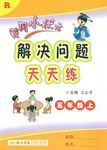题目内容
________ the way ________, he met a strange old man.
- A.In, home
- B.On, to home
- C.By, to home
- D.On, home
D
在表示“在……的路上”,我们一般使用句型是“on the way to…”。to的后面接名词,不接不定式,因为这里的“to”是个介词。例如:
On the way to the zoo, we decided to change our ideas.在去动物园的路上,我们决定改变主意了。
He picked me up on his way to the office.他在上班的途中顺便搭上了我。
注意:home在此处是个副词,它的前面不能用介词。
在表示“在……的路上”,我们一般使用句型是“on the way to…”。to的后面接名词,不接不定式,因为这里的“to”是个介词。例如:
On the way to the zoo, we decided to change our ideas.在去动物园的路上,我们决定改变主意了。
He picked me up on his way to the office.他在上班的途中顺便搭上了我。
注意:home在此处是个副词,它的前面不能用介词。

练习册系列答案
 黄冈小状元解决问题天天练系列答案
黄冈小状元解决问题天天练系列答案 三点一测快乐周计划系列答案
三点一测快乐周计划系列答案
相关题目
 ld---
things that have lost their interest for older people because they are too
well-known. But a child has his pains: he is not so free to do what he wishes
to do; he is repeatedly being told not do something or being punished for what
he has wrongly done.
ld---
things that have lost their interest for older people because they are too
well-known. But a child has his pains: he is not so free to do what he wishes
to do; he is repeatedly being told not do something or being punished for what
he has wrongly done.